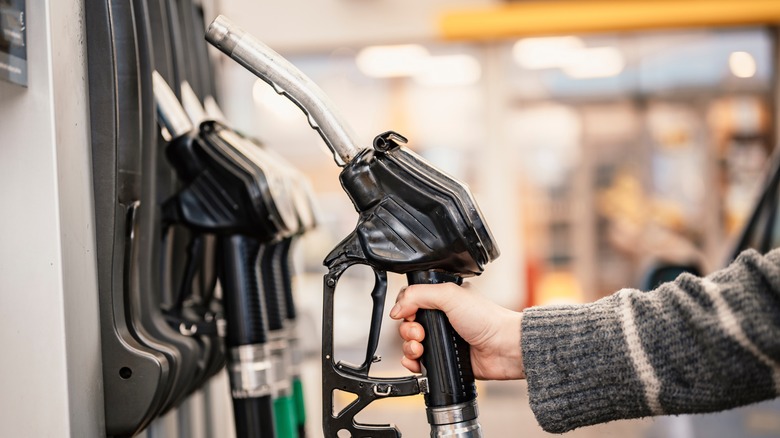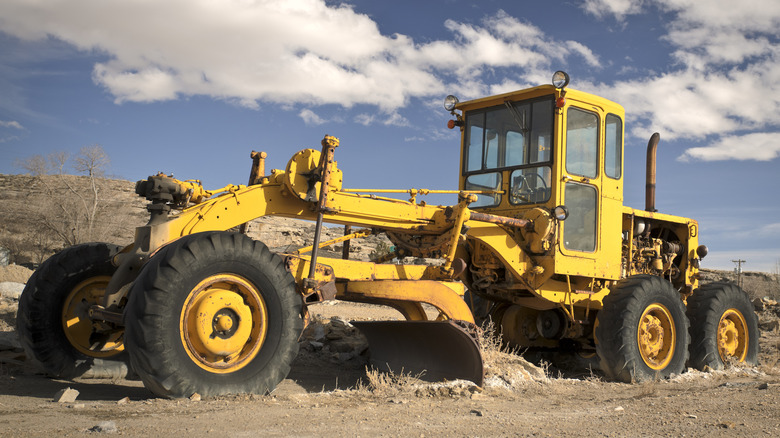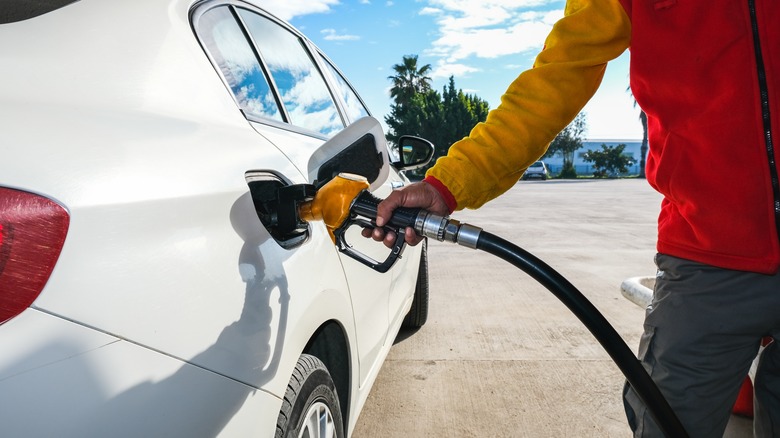Regular Diesel Vs Off-Road Diesel: What's The Difference?
Unlike regular gasoline, diesel fuel is regularly used in not just consumer vehicles, but a variety of specialized vehicles, from off-road trucks to farming equipment. It's one of the many differences between the two major fuel types. When you're driving something powered by gasoline, there are grades to consider, but it's all used for the general purpose of making your car move along a paved road. With diesel, there are actually two different types of diesel fuel used for regular, on-road driving and off-road driving.
Since there's a distinction, it's fair to be concerned that you're putting the wrong kind of diesel fuel in your vehicle. After all, if you put regular gasoline in a high-spec sports car, you're going to get substandard performance, not to mention make a lot of enthusiasts around the world really unhappy with you. So, what is the actual, tangible difference between regular diesel and off-road diesel is, and why it's so important that you can discern that difference at a casual glance?
There's only one difference, but it's an important one
Despite what the naming scheme may imply, there is only one actual difference between regular and off-road diesel fuel: the presence of a dyeing agent. This agent isn't like other diesel additives, which alter the performance of the fuel. All it does is turn the fuel red. Both diesel fuel types are otherwise completely identical – they contain the same ingredients, they burn the same, and they provide the same performance to whatever engine you pump them into.
Regular diesel fuel, also known as "clear diesel" due to the lack of a dyeing agent, is the kind of diesel fuel you can pump into a car at most gas stations. Off-road diesel, also known as "red diesel" thanks to the presence of the dye, is intended for use in industrial vehicles and equipment, such as tractors, bulldozers, backhoes, and large power generators. This kind of diesel is also available in pumps at particular gas stations, but these pumps require special business cards to access. You can't pay for it with a regular credit card or cash.
Why does this difference exist?
Rather than for performance or safety reasons, diesel fuel is differentiated between on-road and off-road for legal and tax reasons. Since off-road diesel fuel isn't supposed to be used in vehicles driving on regular roads, it isn't taxed, which in turn makes it generally cheaper than the on-road stuff. If you're thinking that sounds like a potential loophole, it's not; the sale and circulation of off-road diesel fuel is heavily monitored by several major governmental bodies, including the IRS.
Fuel taxes pay for a large portion of road and highway maintenance and upkeep, and driving with untaxed fuel siphons money away from those efforts. The entire reason you need a special business card to use an off-road diesel pump is so there's a name on file in case that fuel is used somewhere it shouldn't be.
Technically, you could put off-road diesel into a regular diesel car, and unlike some other bad diesel decisions, it wouldn't cause any damage. However, if you try to drive a regular car with dyed diesel to save some cash, you could be hit with some major fines, not to mention criminal charges. There's no way to hide the presence of dye in off-road diesel, so don't bother trying.


